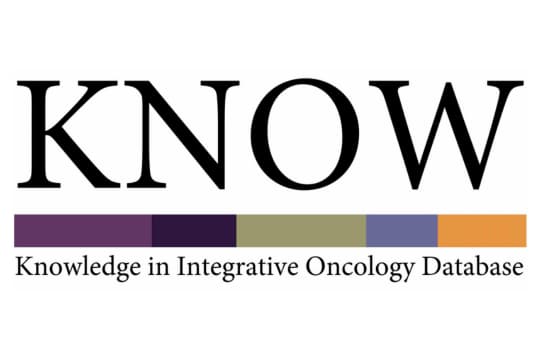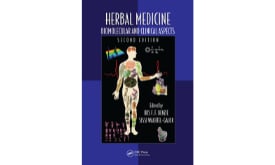Turmeric, with the active component curcumin, is both a food and a dietary supplement that may promote a better immune response and blood sugar levels, and may also help you manage some side effects of cancer.
Are you a health professional?
This section does not replicate the other information on this topic but provides additional details or context most relevant to professionals.
More on safety
Inhibited sperm motility has been reported in cell studies with use.
Modes of action: chemical and biological anticancer activity
A review of the chemistry, analog, metal complex, and formulations of curcuminoids and their biological activities: Amalraj A, Pius A, Gopi S, Gopi S. Biological activities of curcuminoids, other biomolecules from turmeric and their derivatives—a review. Journal of Traditional and Complementary Medicine. 2016 Jun 15;7(2):205-233.
Several modes of anticancer action are discussed in this review: Ravindran J, Prasad S, Aggarwal BB. Curcumin and cancer cells: How many ways can curry kill tumor cells selectively? AAPS Journal. 2009 Sep;11(3):495-510.
A summary of suppressed tumor development, metastasis, and apoptosis in preclinical studies when curcumin is used as adjunct therapy: Norouzi S, Majeed M, Pirro M, Generali D, Sahebkar A. Curcumin as an adjunct therapy and microRNA modulator in breast cancer. Current Pharmaceutical Design. 2018;24(2):171-177.
A summary of the effects of curcumin on colon cancer stem cells: Abdul Khalek FJ, Gallicano GI, Mishra L. Colon cancer stem cells. Gastrointestinal Cancer Research. 2010 Nov;(Suppl 1):S16-23.
Preclinical evidence
Notable preclinical evidence is presented here; clinical evidence is in How can turmeric and curcumin help you? What the research says ›
Improving treatment outcomes
- Curcumin can sensitize tumors to different chemotherapeutic agents including doxorubicin, 5-FU, paclitaxel, vincristine, melphalan, butyrate, cisplatin, celecoxib, vinorelbine, gemcitabine, oxaliplatin, etoposide, sulfinosine, thalidomide, and bortezomib, and it has also been shown to protect normal organs such as liver, kidney, oral mucosa, and heart from chemotherapy and radiotherapy-induced toxicity.1Goel A, Aggarwal BB. Curcumin, the golden spice from Indian saffron, is a chemosensitizer and radiosensitizer for tumors and chemoprotector and radioprotector for normal organs. Nutrition and Cancer. 2010;62(7):919-30; Toden S, Okugawa Y et al. Curcumin mediates chemosensitization to 5-fluorouracil through miRNA-induced suppression of epithelial-to-mesenchymal transition in chemoresistant colorectal cancer. Carcinogenesis. 2015 Mar;36(3):355-67.
- Curcumin is a radiosensitizer for various malignancies and a radioprotector for normal tissues.2Verma V. Relationship and interactions of curcumin with radiation therapy. World Journal of Clinical Oncology. 2016 Jun 10;7(3):275-83.
- Stronger anticancer activity in breast cancer cells treated with berberine and curcumin in addition to 5-fluorouracil compared to 5-fluorouracil alone3Ziasarabi P, Sahebkar A, Ghasemi F. Evaluation of the effects of nanomicellar curcumin, berberine, and their combination with 5-fluorouracil on breast cancer cells. Advances in Experimental Medicine and Biology. 2021;1328:21-35.
Optimizing your body terrain
Bleeding and coagulation imbalance: Anticoagulant effect in animals in preclinical trials4Kim DC, Ku SK, Bae JS. Anticoagulant activities of curcumin and its derivative. BMB Rep. 2012 Apr;45(4):221-6.
Your microbiome: A more diverse colon microbiota, increasing the relative abundance of Lactobacillales and decreasing Coriobacterales order in mice with colon tumors in preclinical trials5McFadden RM, Larmonier CB et al. The role of curcumin in modulating colonic microbiota during colitis and colon cancer prevention. Inflammatory Bowel Diseases. 2015 Nov;21(11):2483-94.
Helpful links for professionals

Subscription required

Benzie IFF, Wachtel-Galor S, editors. Herbal Medicine: Biomolecular and Clinical Aspects. 2nd ed. Boca Raton (FL): CRC Press/Taylor & Francis; 2011.

Health professional comment
We invite health professionals to contribute expertise or send us questions.
"*" indicates required fields
References

